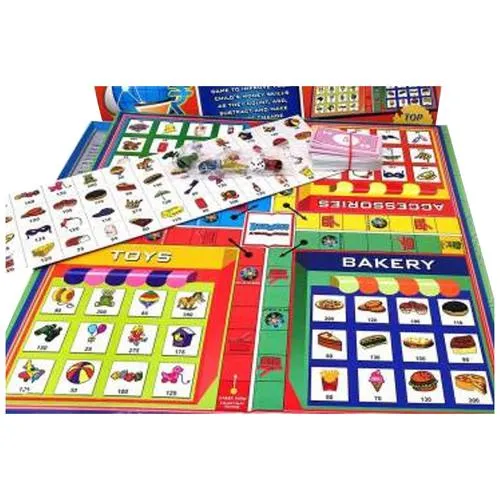Business games have proven their pedagogy value many times over. Participants can hone their managerial skills across complex content areas like supply chain management, entrepreneurship, international management and corporate finance through these games.
To play this game with three to four players, dice must be rolled. Whoever scores twelve first will advance.
They are a form of training
Business games are used to teach students key business concepts and skills, such as management techniques, economic principles and team collaboration. These games are known as business simulation games and they’ve proven increasingly popular at universities worldwide.
Game-based learning offers learners many advantages, enabling them to exercise their knowledge in a safe environment with no real financial risks involved. Furthermore, this form of training promotes active learning as it reinforces learning by doing. Ultimately this contributes to sustainable learning effects.
At the core of every game lies team competition: participants are divided into teams and compete against one another to respond to an urgent situation in a realistic environment. Each round requires them to make detailed decisions that have direct repercussions, helping participants learn quickly and confidently when faced with unexpected scenarios, while at the same time learning that mistakes are acceptable and contributing to strong team spirit among its members. Finally, games help foster an atmosphere of teamwork between its participants.
They are a form of entertainment
Business games offer employees an interactive form of entertainment and learning. According to The Careers and Enterprise Company, they should engage participants while offering them an immersive environment to witness their decisions’ impacts and see the outcomes for themselves.
Business games are competitive games designed to simulate real life. Over several rounds or years, they allow players to experience the effects of their decisions in an authentic setting, often designed to promote teamwork or customer service training and can improve employee morale and productivity resulting in significant returns on investment. Business games have proven popular at university business schools worldwide as they can easily be tailored to suit any organization’s specific requirements and adapted according to individual organization needs. Business games are now used in organizations worldwide!
They are a form of communication
Business games are simulations designed to give participants first-hand experience with business-related concepts, often used as learning methods in universities (particularly business schools) and corporate executive training programs. Business games can be classified by their goals, game base, roles and rules of engagement.
Some business games are deterministic while others contain random elements. Furthermore, the time period a round represents can also help characterize it; one round may represent one day, week, month quarter year year and thus require players to differentiate between short- and long-term tactics when creating strategies.
The goal of this game is to foster cooperation, successful teamwork and trust among teams. Furthermore, it helps teams learn to provide clear directions – essential skills in technical fields where overly long explanations may occur – making communication efficient. Brevity and selective word usage are keys to effective communication.
They are a form of team building
Business games provide employees in the workplace with an engaging form of teambuilding activity, helping each employee showcase his/her individual personality while building cohesive teams that work well together. Each member can take on different roles within the game to encourage discussion between team members.
Simulations have long been used as an educational method in university business schools and corporations alike, serving to illustrate complex content in an accessible but realistic manner while creating an active learning process for those taking part.
Contrary to traditional board games, participants in business simulation games collaborate in solving realistic problems within an simulated company environment rather than competing directly against each other. The aim is to learn how to run and cooperate as part of a virtual company while cooperating as part of a team – the games also address behavioral aspects like management styles and negotiation techniques as well as management styles/styles/negotiation skills and behavioral aspects such as management styles/styles etc.. Games may either be deterministic (where player decisions control outcomes) or stochastic events like natural disasters or random events like weather-induced outcomes such as this.









